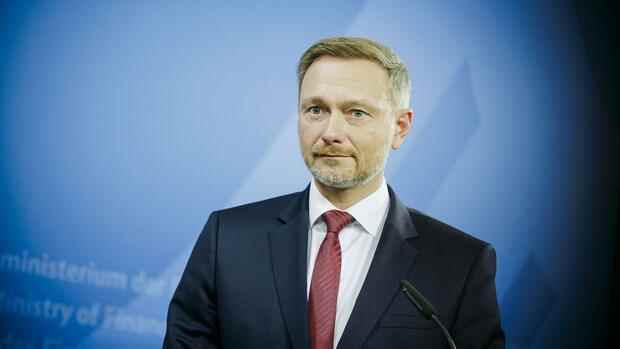The finance minister approved money.
(Photo: IMAGO/photothek)
Berlin The federal government intends to spend up to 3 billion euros on four floating liquid gas terminals over the next ten years. The Ministry of Finance has therefore already released the funds without first consulting the Budget Committee of the Bundestag. According to a letter from the Federal Ministry of Finance to Bundestag President Bärbel Bas, this was necessary for “compelling reasons”.
Corresponding charter contracts should be signed on Thursday and April 20, it said. The aim is to import liquefied natural gas (LNG) to secure the gas supply for Germany. More LNG is one building block in the German government’s efforts to reduce dependence on Russian gas supplies. The liquid gas is delivered by tankers.
A spokesman for the energy group RWE said RWE is involved in chartering floating LNG terminals on behalf and on behalf of the federal government. Depending on how quickly the onshore connection for the pipeline is available, RWE assumes that some of the ships could be ready for use as early as next winter. The federal government is examining which landing points are suitable for the ships. In principle, ports such as Wilhelmshaven, Brunsbüttel or Rostock would be conceivable.
Government circles said it was correct that the Ministry of Economic Affairs and Climate Protection had signed contracts for the chartering of three floating terminals. The charter itself is done by private companies. Planning and preparations for negotiations for a fourth floating terminal are also currently underway.
Top jobs of the day
Find the best jobs now and
be notified by email.
In an “Energy Security Progress Report” from the end of March, the Ministry of Economics stated that the federal government had acquired options for three floating LNG terminals via the companies RWE and Uniper in order to further increase security of supply in Germany.
LNG import terminal planned in Wilhelmshaven
The federal government is currently examining possible locations on the North and Baltic Seas. The terminals could be used there at short notice, some as early as winter 2022/23. The Treasury letter referred to four floating storage and regasification units.
For example, an LNG import terminal is planned in Wilhelmshaven. In order to connect this to the long-distance gas network, a 30-kilometer pipeline is to be built in the Friesland district by the end of this year. Together with a floating platform, via which the liquefied natural gas is landed and converted back into the gaseous state, LNG imports via Wilhelmshaven should start by early 2023 at the latest.
Lower Saxony’s Energy Minister Olaf Lies (SPD) presented corresponding plans together with the gas network operator Open Grid Europe, who wants to build the line, and representatives of municipalities. According to the Ministry of Energy in Hanover, permanently installed terminals could not be operational before 2025 at the earliest.
More: Energy association calls for plan to phase out Russian gas supplies
